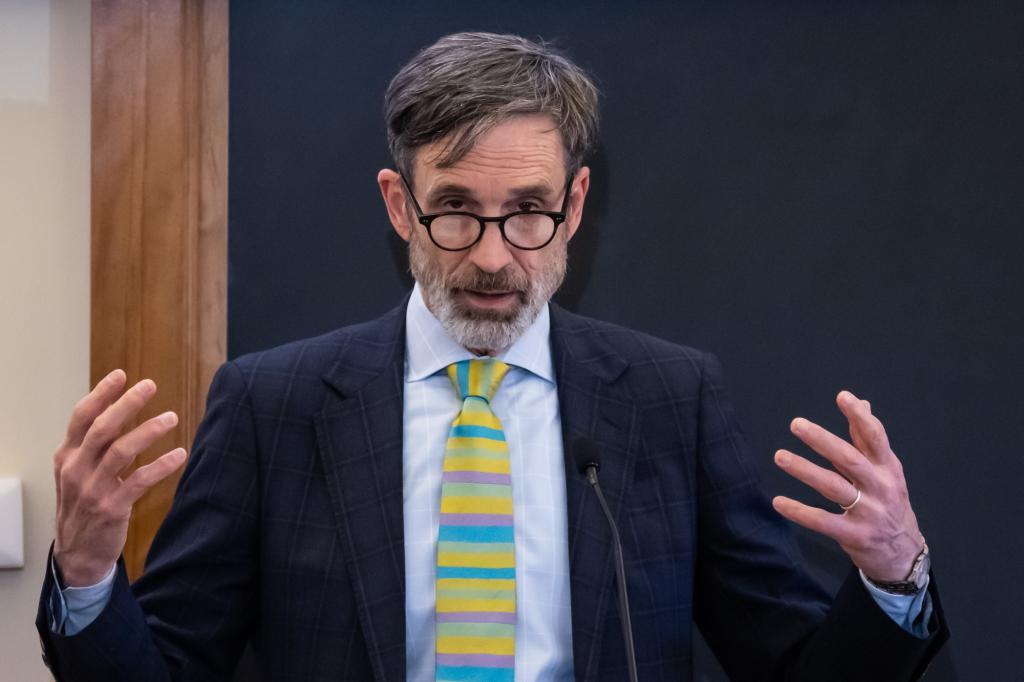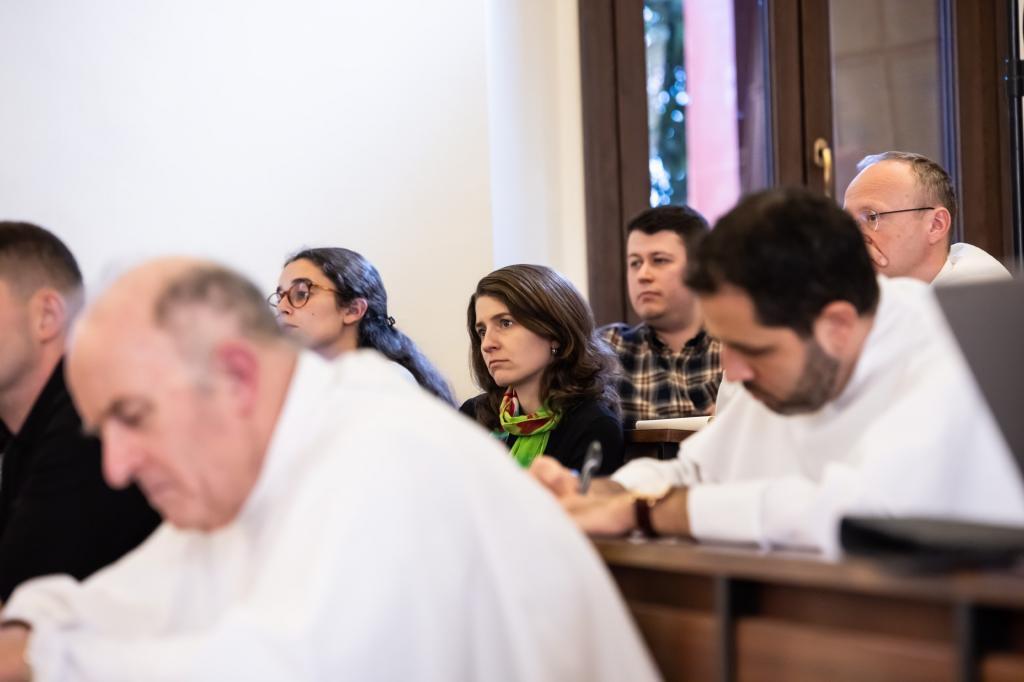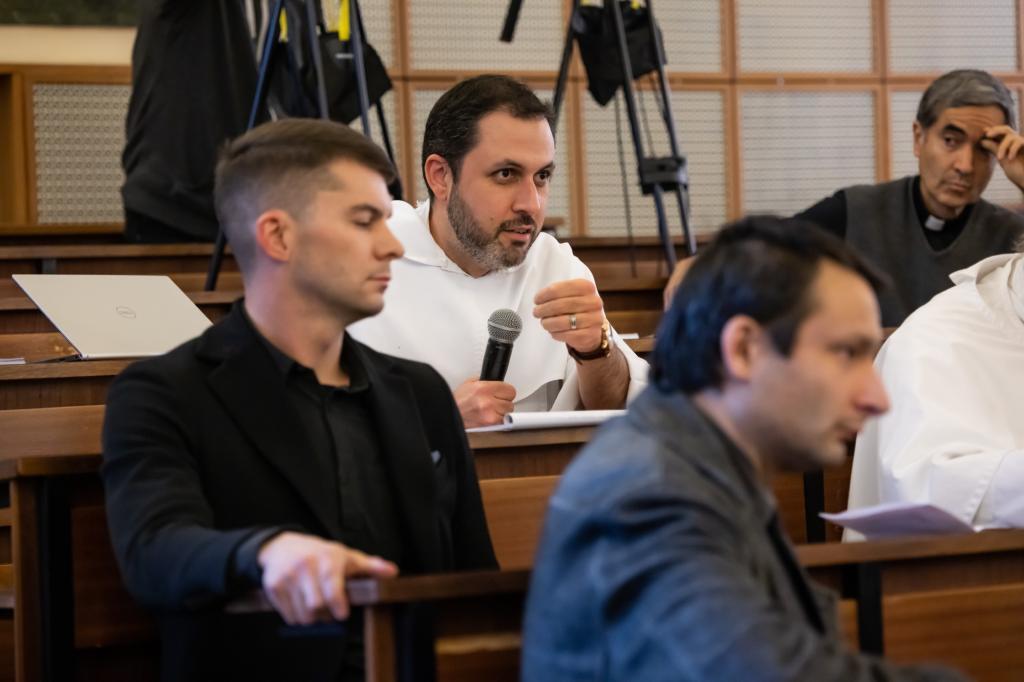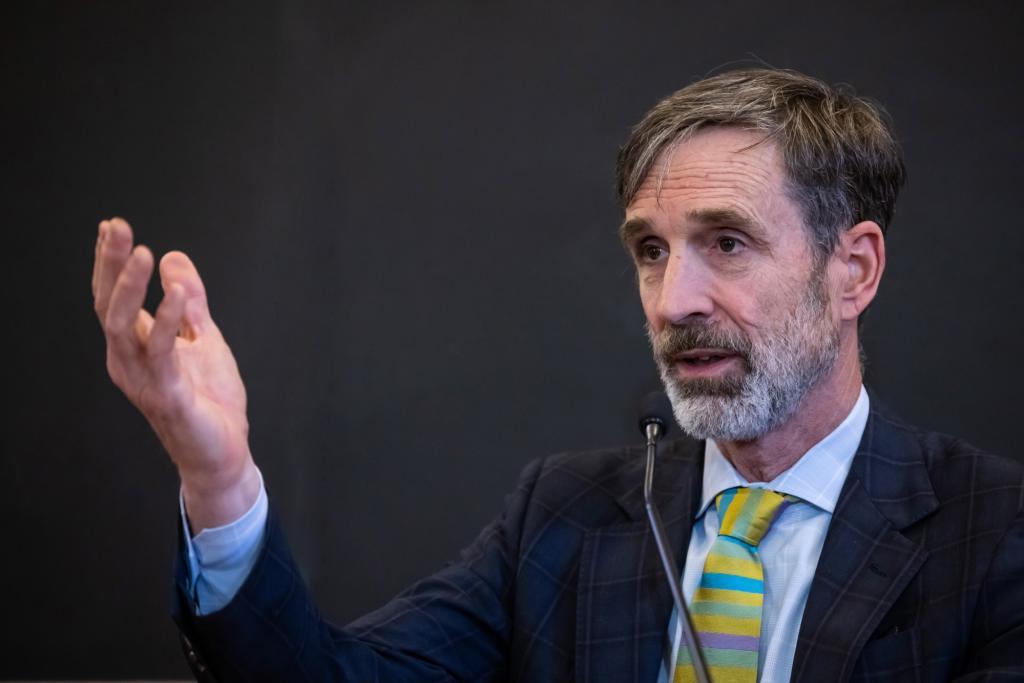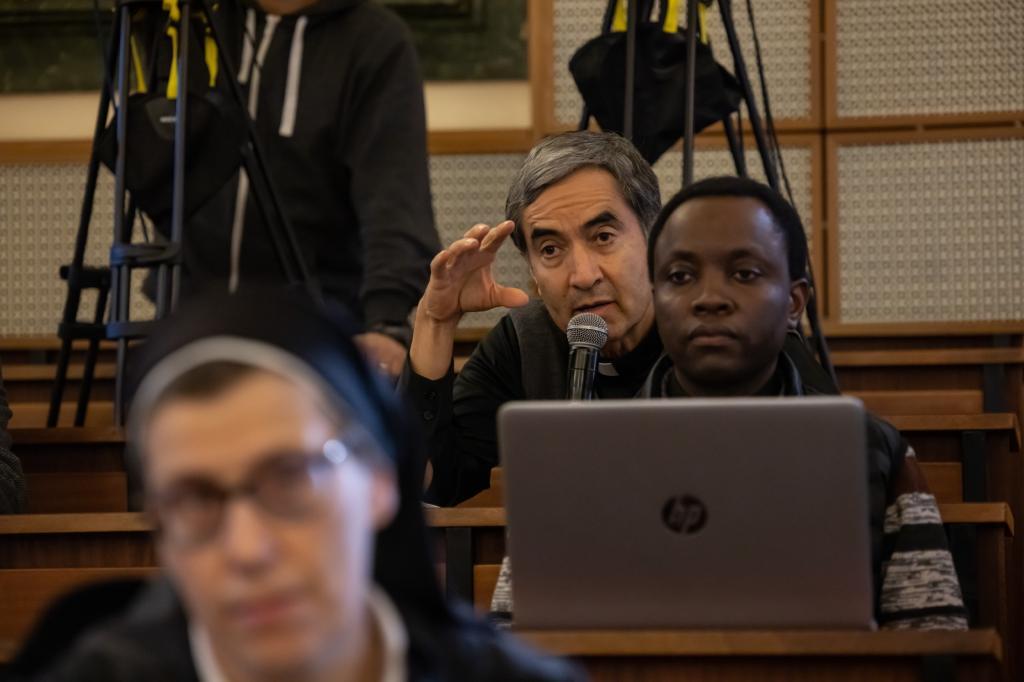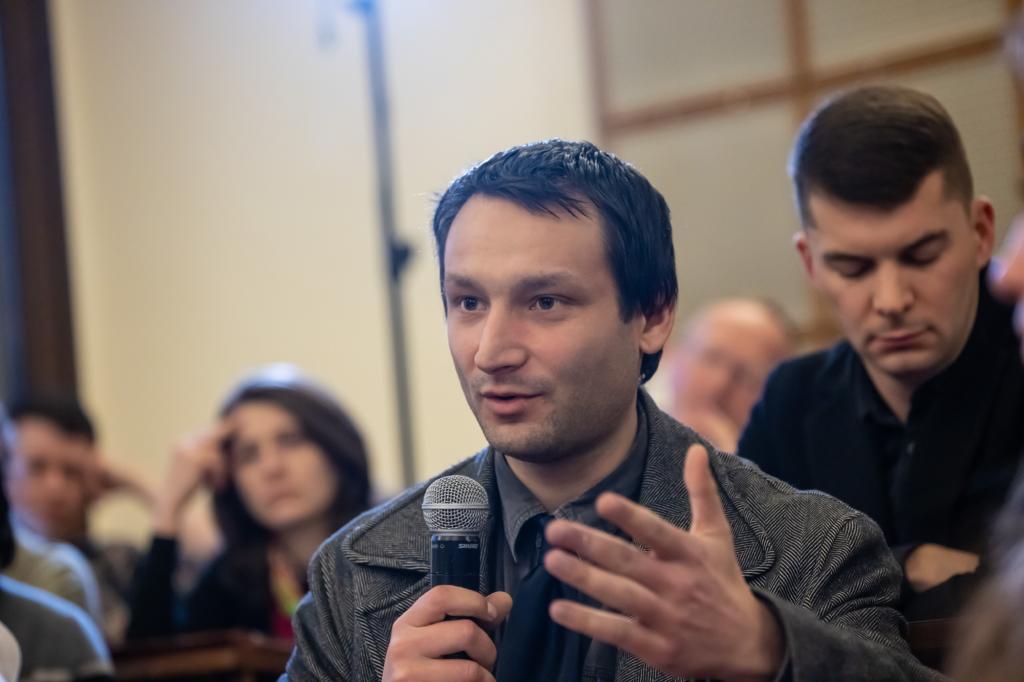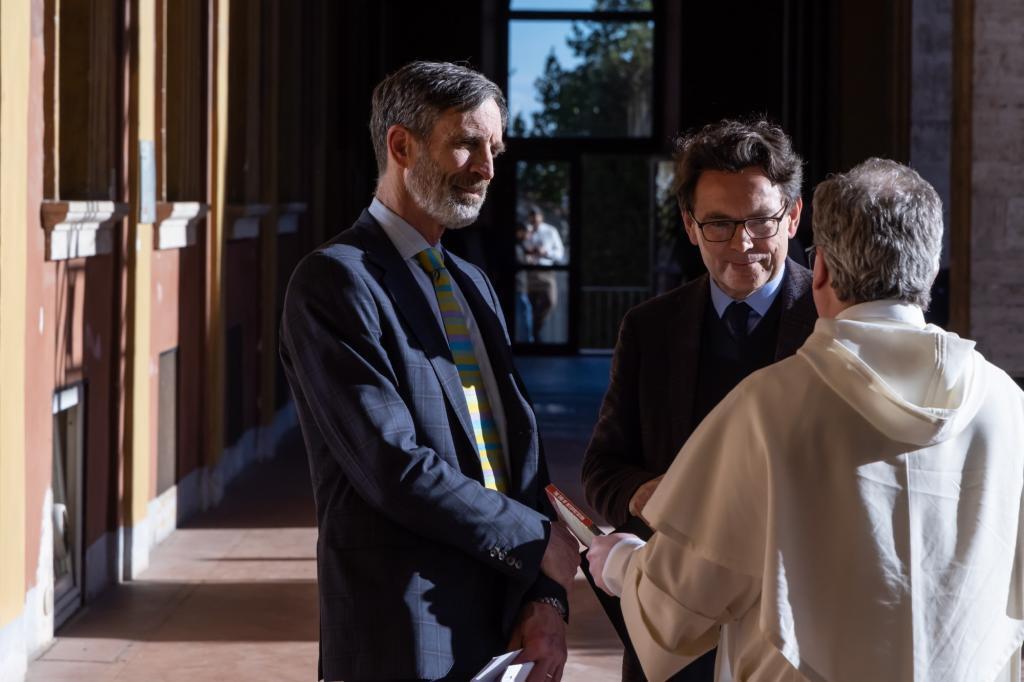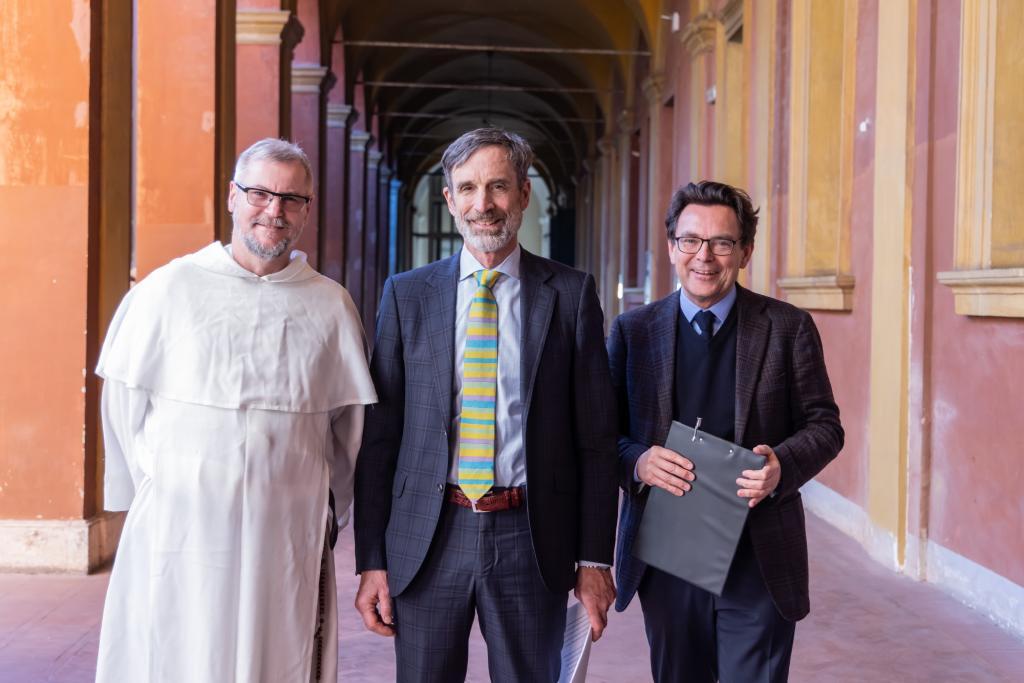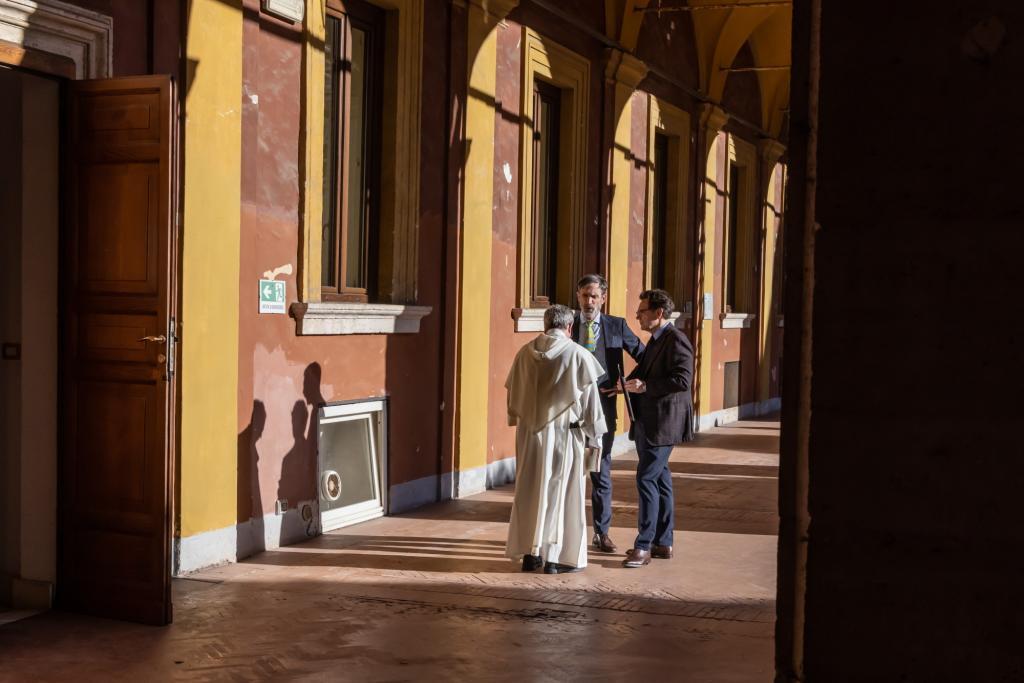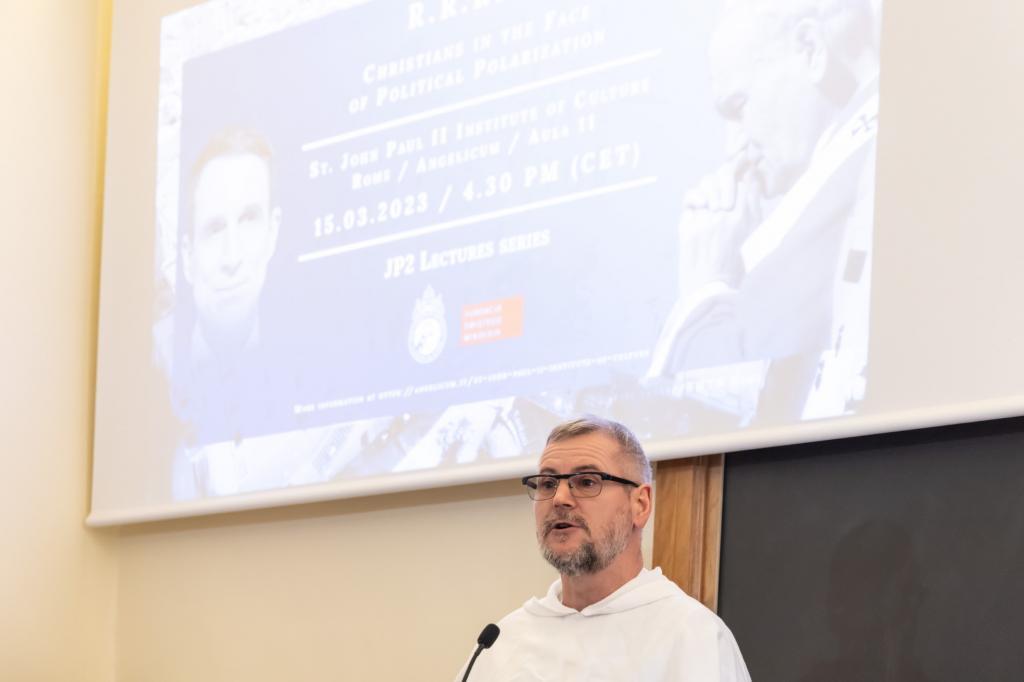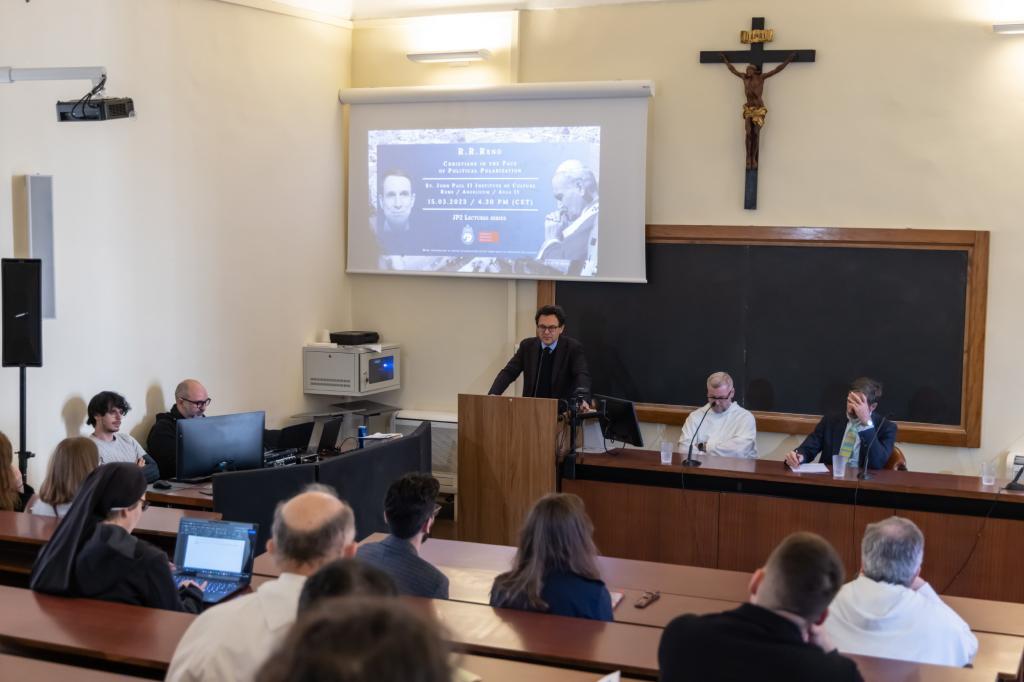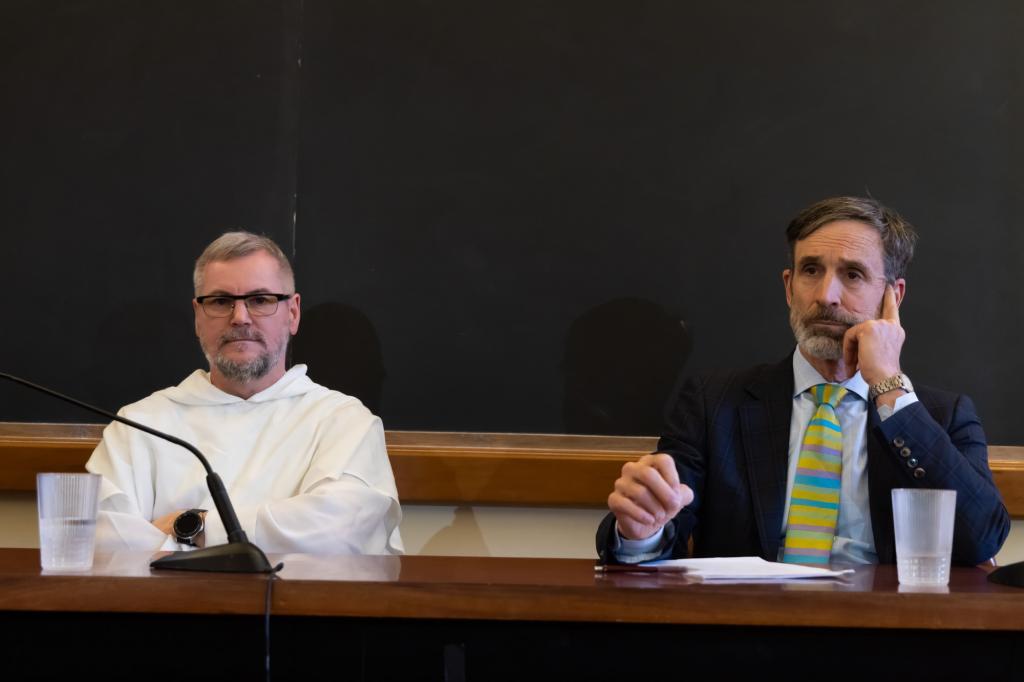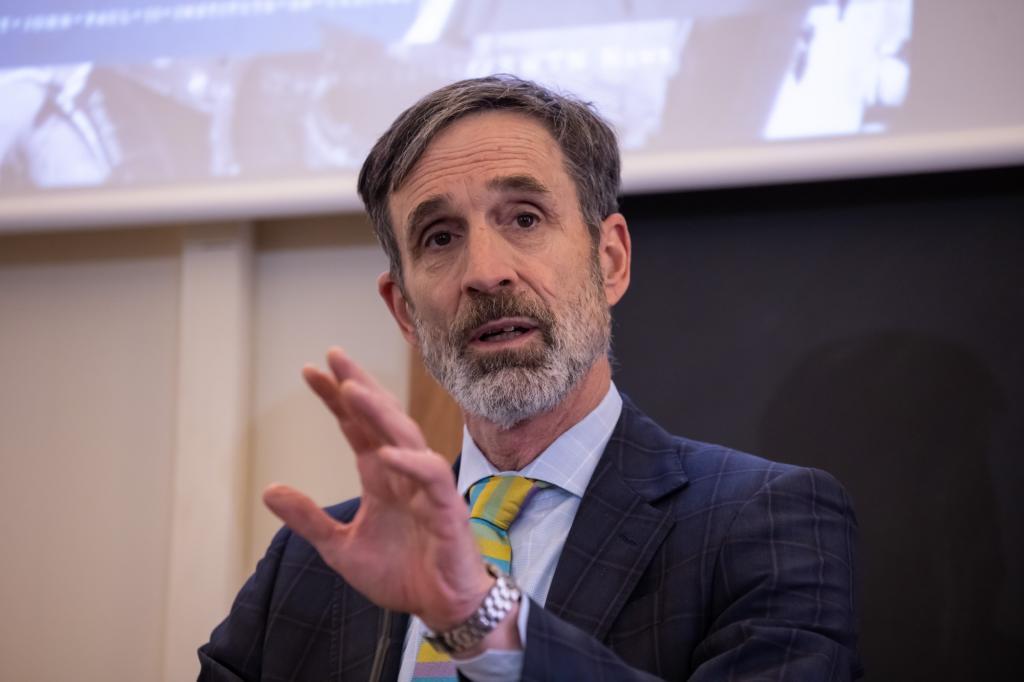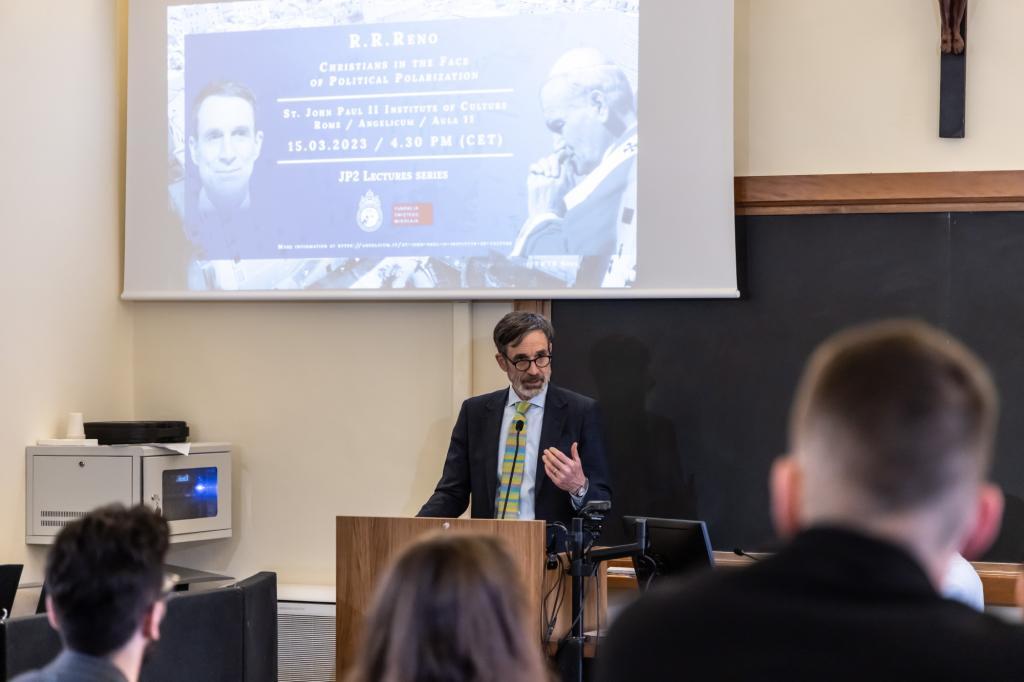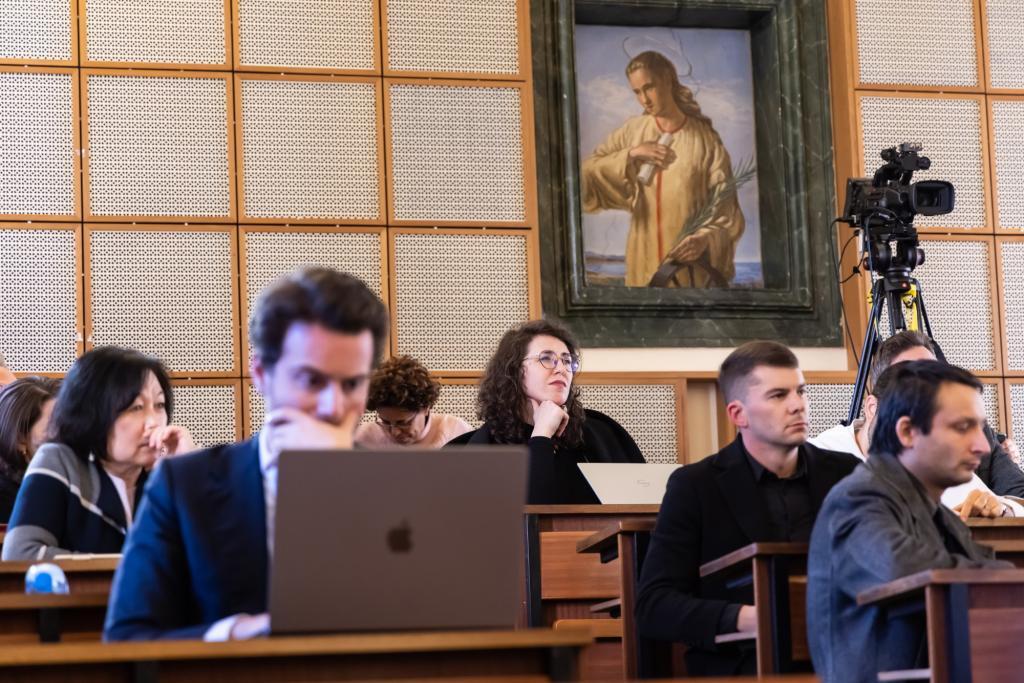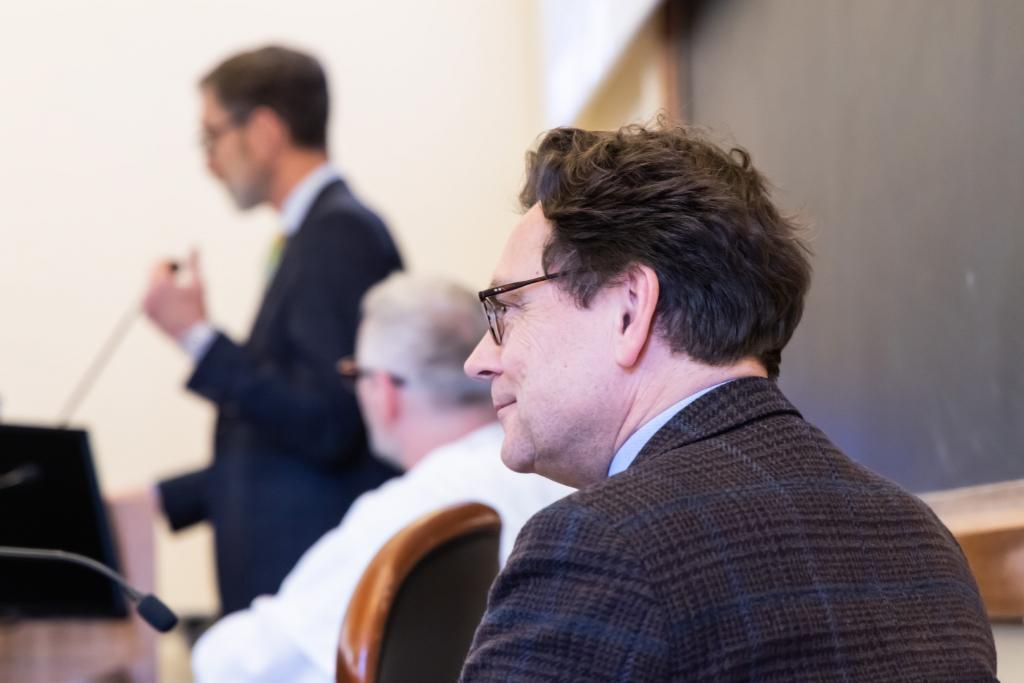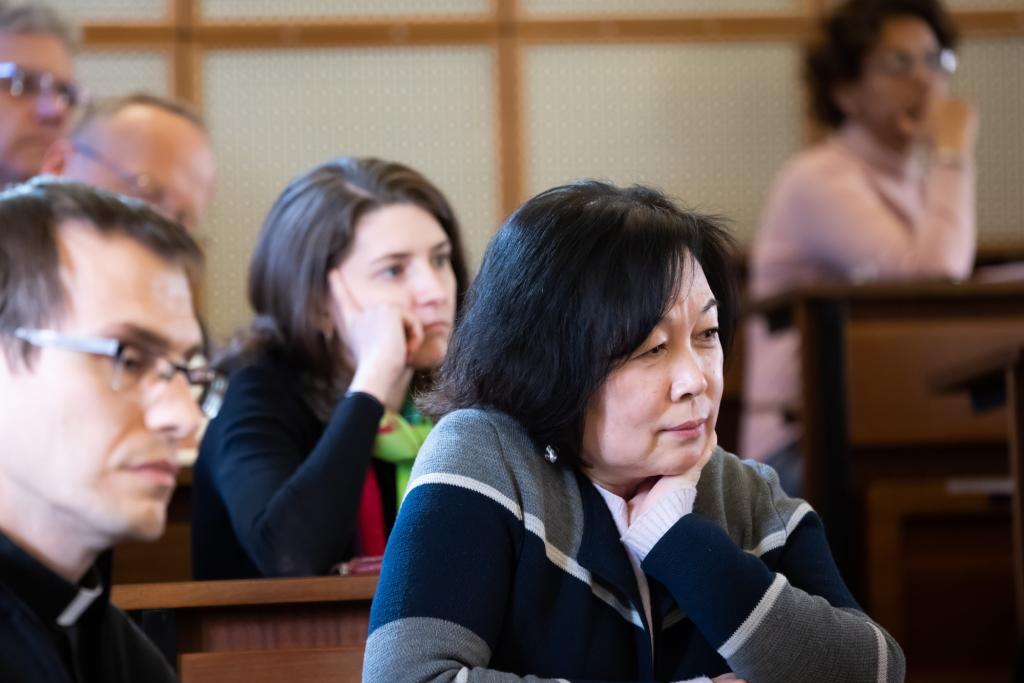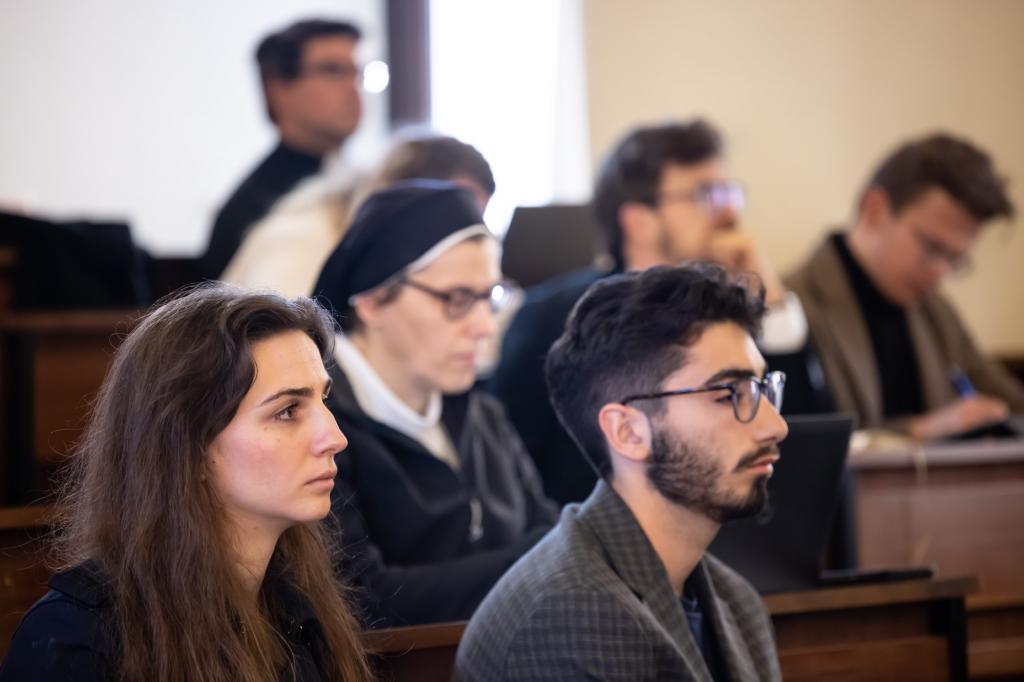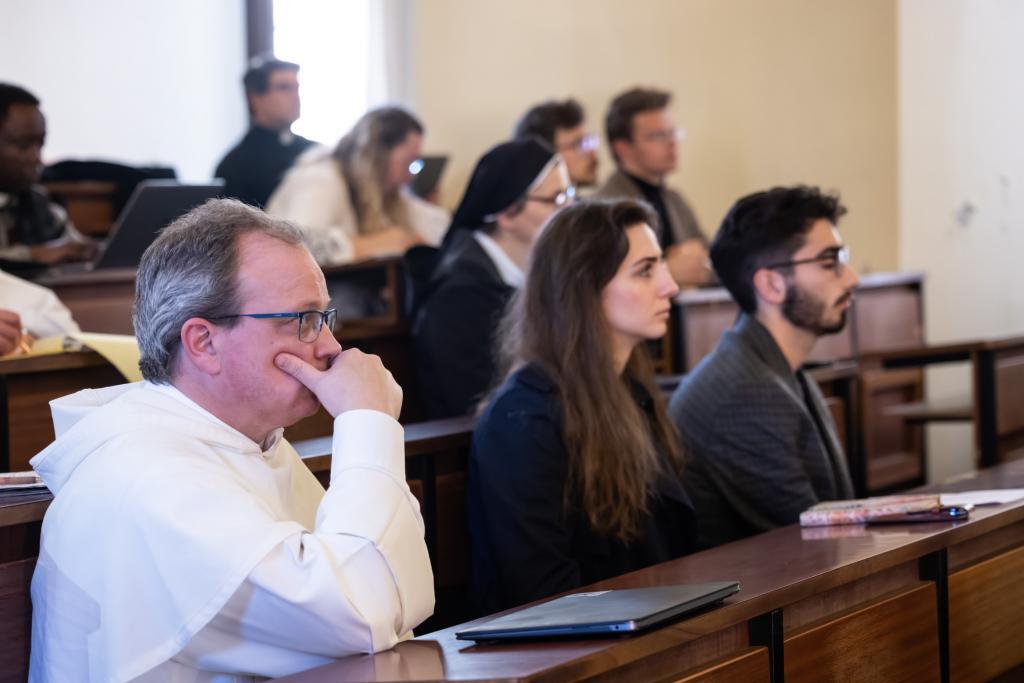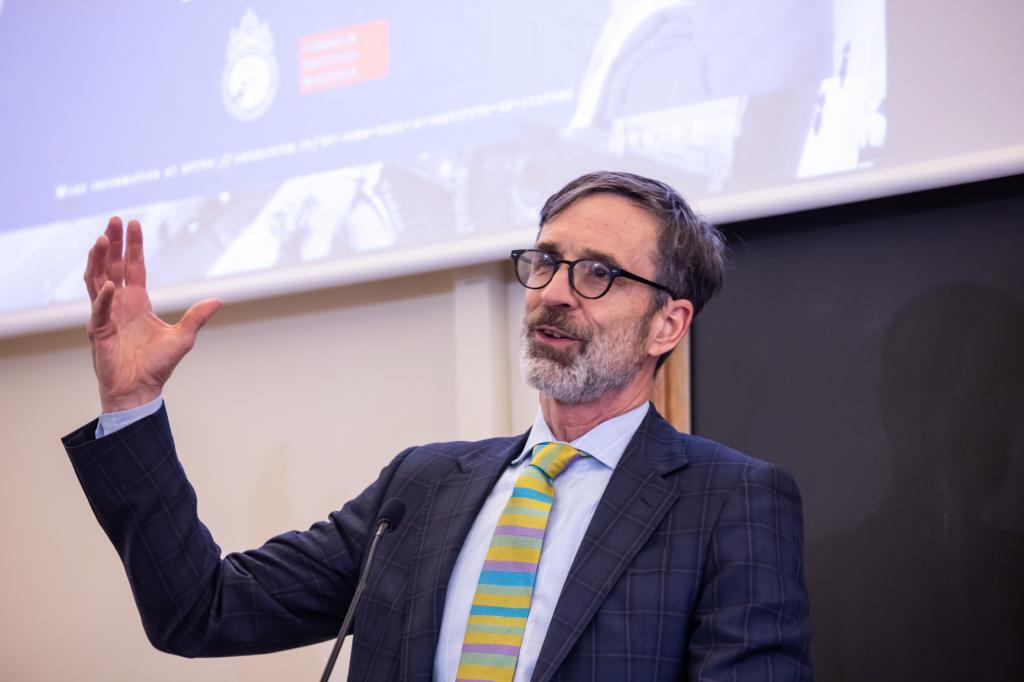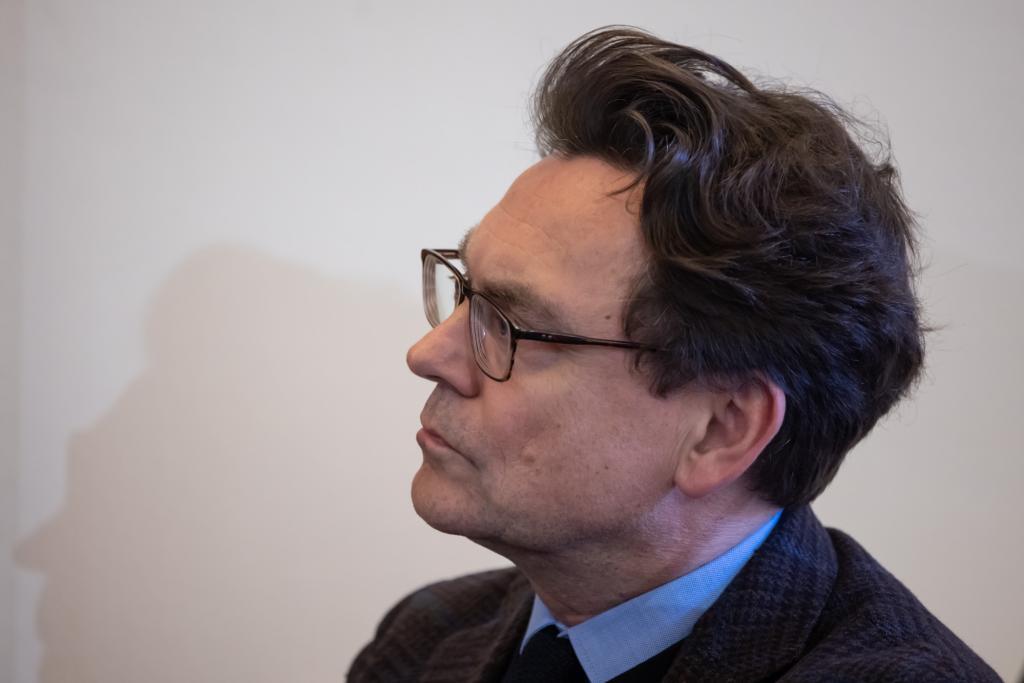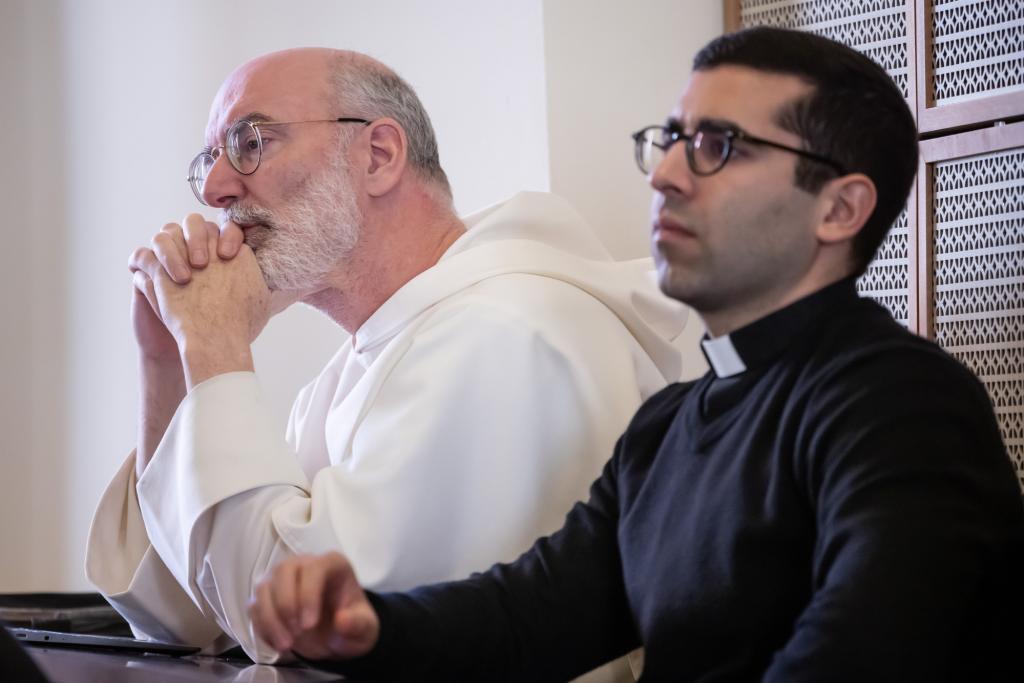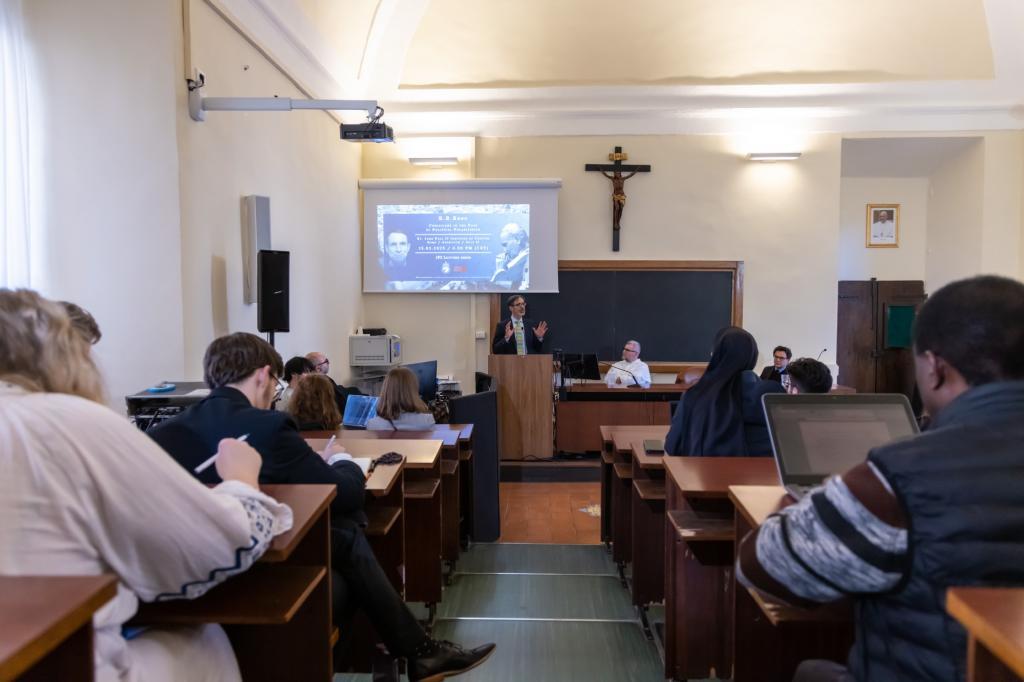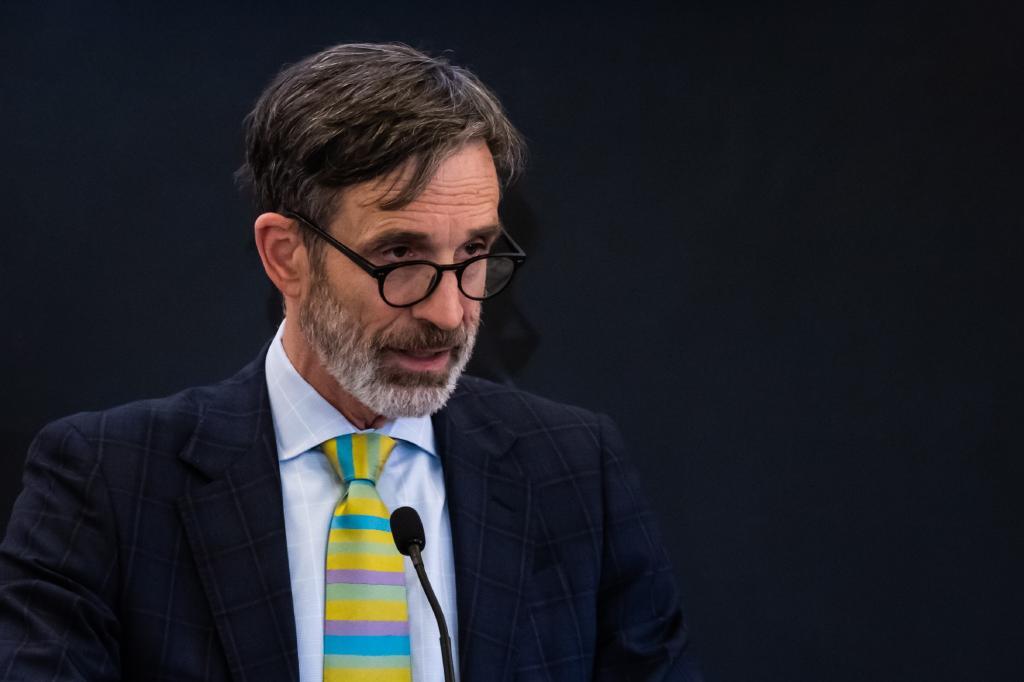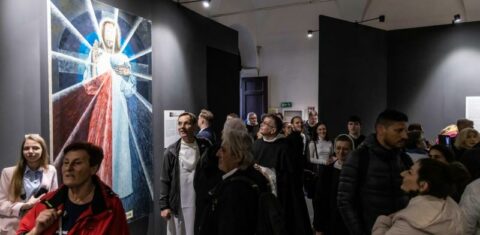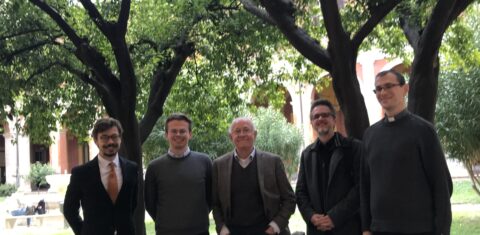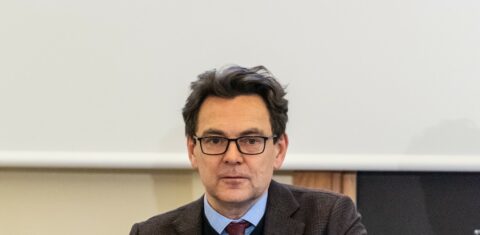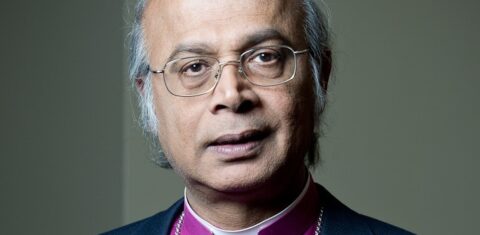Rusty Reno began the lecture by pointing out the paradox of polarization that characterizes our times. As the speaker pointed out, there is often talk of devastating polarization, yet the streets are calm and world authorities are flying off to Davos unhindered and unopposed. Nevertheless, we feel that all is not well, as we are undergoing a disintegration born of the metaphysical impoverishment of the West. Our institutions are crumbling, leaving us vulnerable and aimless. Political cultures feel dysfunctional, not because ardent ideological passions are in conflict, but rather because many of us are frustrated and angry. Populism, notoriously ill-defined, takes on oppositional attitudes that are driven by anger and frustration. The lecturer asks why the dominant consensus in the West, built after World War II, has lost its authority.
Rusty Reno recalled that the disastrous decades of the early 20th century destroyed the credibility of the old authorities. The new beginning in the West, which emerged after World War II, promoted the concept of an open society. The political and cultural aspect of this consensus was described by Karl Popper in his book Open Society and Its Enemies. According to the speaker, Popper argues that the Western tradition of seeking timeless truths fosters totalitarianism, and that the only way to ensure an open society is to be satisfied with meaning instead of truth. In contrast, the political-economic aspect of the set political order is presented by Friedrich Hayek, who argues that concepts of the common good contain elements of totalitarianism, and that market mechanisms of social organization are preferable to government.
The neoliberal consensus of the 1990s united Karl Popper and Friedrich Hayek, leading to a world of global trade and a liquidated moral imagination.
Later in the lecture, Reno pointed to the metaphysical crisis and the collapse of traditional forms of life in Western society. Ongoing liberation processes that promised greater freedom have destroyed traditional forms of life and caused a loss of a sense of belonging. He was also critical of movements undermining the value of the family. He noted that dissatisfaction with the current status quo is increasingly widespread.
In the final part of the lecture, Rusty Reno refers to the role of Christians in the face of these problems. He recalls Leo XIII, who called for cooperation between social classes to mitigate extremes and emphasized the responsibility of the powerful to achieve social balance. He pointed out that these days, while political forms remain intact, we have undergone a cultural revolution of unprecedented scope. Accordingly, Christians should engage in dialogue and cooperation among different social groups to help mitigate conflicts and restore social balance.
Fot. Stefano Dal Pozzolo
___________________
The “JP2 Lectures,” open monthly lectures given by leading scholars from around the world, are offered by the St. John Paul II Institute of Culture at the Faculty of Philosophy of the Pontifical University of St. Thomas Aquinas, Fr. Karol Wojtyła’s Roman Alma Mater. The guest speakers in the “JP2 Lectures” 2022-23 series are: Joseph Weiler, Vittorio Possenti, Mirosława Grabowska, Antoine Arjakovsky, Sister Helen Alford O.P., Dariusz Karłowicz, R. R. Reno, Fr. Thierry-Dominique Humbrecht O.P., Fr. Franciszek Longchamps de Bérier.Special guests of the “JP2 Conferences” in the previous two years were: Cardinal Gianfranco Ravasi, who delivered the inaugural lecture on Oct. 19, 2020, as well as John, Lord Alderdice, Carl A. Anderson, Rémi Brague, John Cavadini, Marek A. Cichocki, Renato Cristin, Fr. Francois Daguet O.P., Chantal Delsol, John Finnis, Dariusz Gawin, Stanisław Grygiel, Jean-Luc Marion, John Milbank, Andrea Riccardi, Ewa Thompson, George Weigel and Bishop Rowan Williams.
